
Our Team
Principal Investigators
-

ASST.PROF.SOMPONNAT SAMPATTAVANICH
SiSP Lab Co-Director
Ph.D. (Medical and Electrical Engineering, HST)
Email: somponnat.sam@mahidol.edu
Research Interest: 1. Precision Oncology 2. Biomarker discovery 3. Drug screening 4. Phenotypic Heterogeneity
ORCID | Google Scholar | ResearchGate | Scopus | LinkedIn
-

ASSOC.PROF. SIWANON JIRAWATNOTAI
SiSP Lab Co-Director
Ph.D. (Molecular genetics)
Email: siwanon.jir@mahidol.ac.th
Research Interest: 1. Cholangiocarcinoma and rare cancers 2. Roles of cycle control in cancer 3. Cancer drug resistance 4. The repositioning in cancer therapy 5. Animal models for cancer researchORCID | Google Scholar | ResearchGate | Scopus | LinkedIn
-

PROF. URAIWAN PANICH
Ph.D. (Pharmacology)
Email : uraiwan.pan@mahidol.ac.th
Research Interest : 1. Redox pharmacology and skin aging 2. Ethnopharmacology
ORCID | ResearchGate | Scopus | Linkedin
-

ASSOC.PROF. DR. ADISAK WONGKAJORNSILP
Ph.D. (Pharmacology)
Email : adisak.won@mahidol.ac.th
Research Interest : 1. Cancer immunotherapy 2. Dendritic cell biology 3. Asthma
ORCID | Google Scholar | ResearchGate | Scopus | LinkedIn
-

ASSOC.PROF.DR.SARIN CHIMNARONK
Ph.D. (Biosciences)
Email : sarin.chi@mahidol.ac.th
Research interest: 1. Structural and functional analysis of RNA–protein interactions 2. RNA virus replication.
ORCID | ResearchGate | Scopus
Technology Platform Leaders
-

Monthira Suntiparpluacha, PhD
Organoid Bank and Profiling
Postdoctoral Fellow
PhD (Biotechnology)
Email: monthira.sun@mahidol.edu
We have extensive experiences in culturing patient-derived in vitro models (both 2D and 3D cell culture). Our main focus is creating a live biobank of patient-derived organoids from cancer patients and performing drug screening in the 3D platform for personalized drug selection and drug development.
-

Amphun Chaiboonchoe, PhD
Bioinformatics Analysis
Research Scientist
PhD (Computational Systems Biology)
Email: amphun.cha@mahidol.edu
My research primarily centers around systems medicine and the intricate interplay between phenotype and genotype. Furthermore, I am interested in integrating 'omics' data with clinical data to identify biomarkers and classify subtypes in several cancers, such as colorectal cancer, using machine learning and deep learning techniques.
-

Romgase Sakamula, PhD
Multiplex Tissue Imaging
Postdoctoral Fellow
PhD (Zoology)
Email: romgase.sak@mahidol.edu
As a multiplex imaging researcher in cancer, my focus is unraveling intricate cellular interactions within the tumor microenvironment. By deciphering these complexities, I strive to predict treatment responses, cancer progression, and advance broader medical knowledge, holding promise for improved outcomes in cancer patients and beyond.
Staff Scientists
-

Tongchai Payungwong, PhD
Postdoctoral Fellow
PhD (Medicine)
I am interested in molecular biology and epigenetics in cancer. I working on 2 projects relating to synthetic lethality, biomarker discovery, and drug treatment in cancer. First, The Enhancement of Cell Cycle Inhibitors in Cholangiocarcinoma with epigenetic drug. Second, The Mechanism of recurrent oral cancer.
-

Makamas Chanda, PhD
Postdoctoral Fellow
PhD (Biomedical Sciences)
My research focuses on cancer metabolism, with an emphasis on metabolic dysregulations in cholangiocarcinoma (CCA) and the identification of potential therapeutic strategies. I am investigating the development of metabolic inhibitors that target aberrant pathways in CCA, as well as exploring combination therapies to overcome resistance and aggressiveness. By targeting the unique metabolic dependencies of CCA, my objective is to contribute to the development of more effective and personalized treatment approaches. -
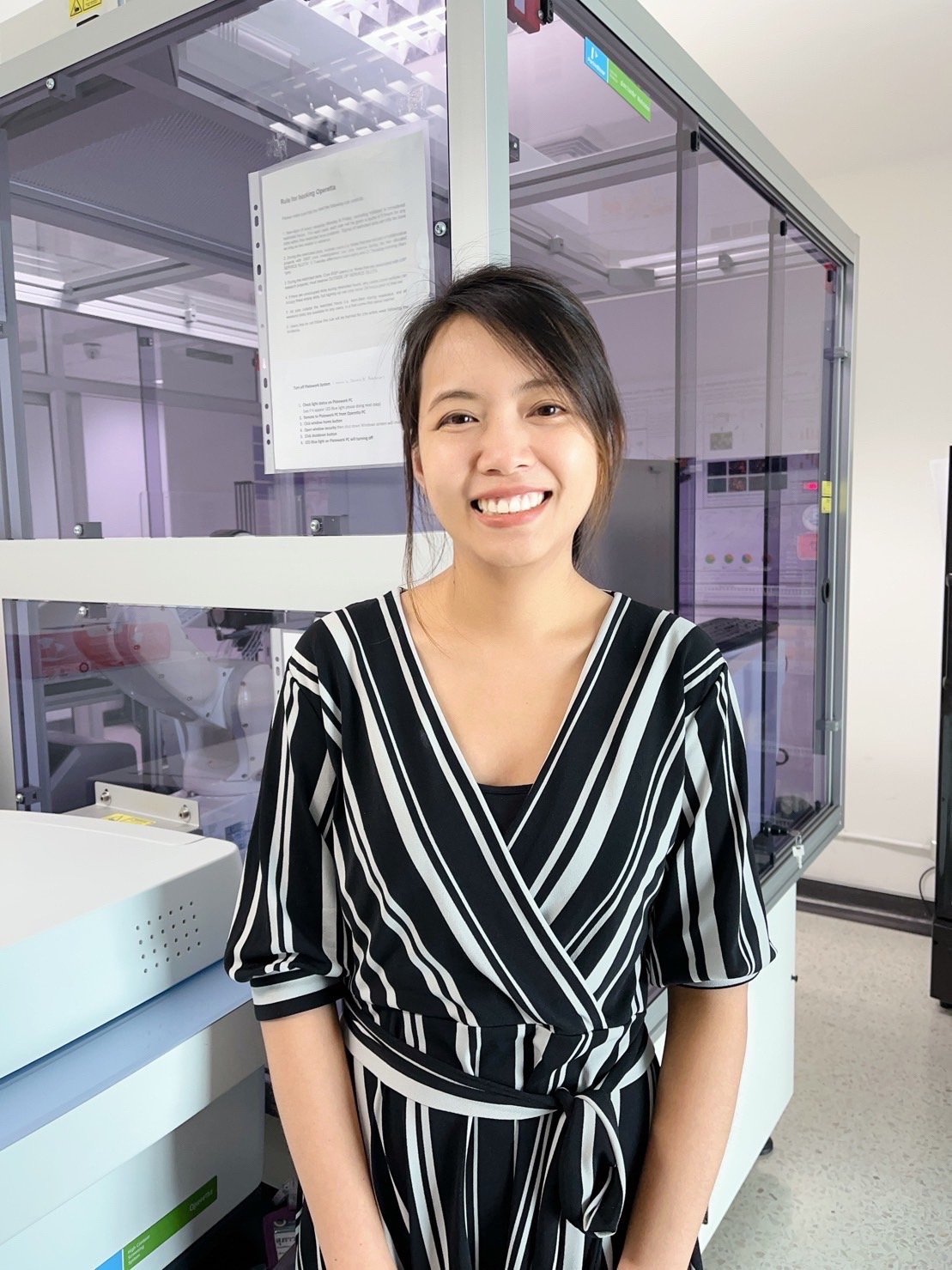
Supawan Jamnongsong
High-content Imaging Specialist
MSc (Plant Science)
My research has focused on System-based profiling in Asian cholangiocarcinoma. I successfully identified the best therapeutics and developed gene expression-based prognosis/predictive markers for cholangiocarcinoma subtype1 (CCA1). I am currently working on finding new treatment strategies to overcome resistance in the CCA1 subtype. I have also worked on the spatial biology of cholangiocarcinoma.
-
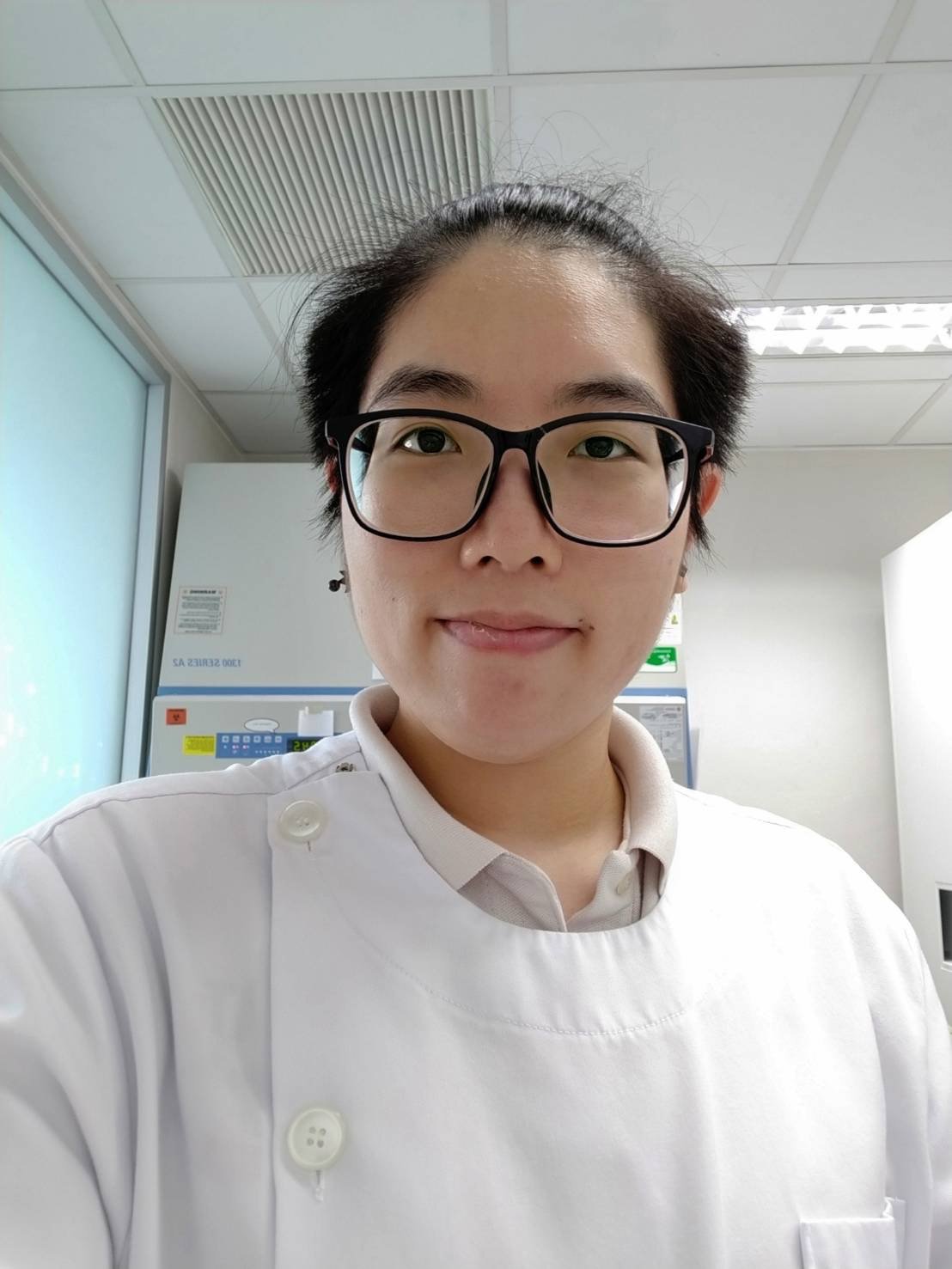
Juthamas Sitthikornpaiboon
Primary Cell Culture Specialist
MSc (Genetics)
My project is to create patient-derived models of gynecological cancer for precision medicine studies and clinical use. I also focus on optimizing platforms, i.e. Comet assay and BH3 profiling, for predicting responses to standard and other promising targeted treatments in gynecological cancer patients.
-

Kattaleeya Jindapornprasert
Description goes here -

Sunisa Prasopporn
Animal Model Laboratory Specialist
MSc (Pharmacology)
My research focused on exploring an acquired vulnerability of drug-resistant cholangiocarcinoma (CCA). Previous work discovered the combination of chemotherapy (GEM/CIS) plus anti-IAP drugs for overcoming drug resistance in CCA. Currently, I am working on ARID1A loss of function mutation by using CRISPR/Cas9 knockout to identify a new drug target for ARID1A mutated CCA.
-

Pimnapas Watiwuttipong
BSc (Veterinary Technology)
Assisting with the animal experimentation section of researchers' work involves controlling animal breeding, conducting experiments with the animals, and collecting samples from them for testing purposes.
-

Rungnapa Rattanasaikaew
High Voc. Cert.
Managing and overseeing laboratory animals for research purposes.
-

Chanettee Jamyuang
Reversed Phase Protein Array Specialist
MSc (Biotechnology)
As a Reversed Phase Protein Array Specialist, I explore proteomic profiles in cancer, concentrating on drug discovery and understanding drug resistance mechanisms. Committed to advancing treatment strategies through comprehensive proteomic analysis to develop targeted treatment strategies for enhanced therapeutic outcomes.
-

Phetthinee Muanjumpon
Immunohistochemistry Specialist
MSc (Anatomy)
I am interested in oxidative stress and antioxidants in skin aging models, both in vitro and in vivo. The interesting proteins and genes in mitochondrial energetics and redox signaling pathways were explored by using biomolecular techniques including mito stress test assay, ROS detection assay, immunofluorescence, and imaging.
-

Tanyapohn Soingam
MSc (Microbiology)
The current work is the study on the role of the epidermal microenvironment in the regulation of candidate proteins-modulated photoaging in dermal fibroblasts, the effects of PM 2.5 on mitochondria, and PM 2.5 regulates inflammation and apoptosis by cell culture and molecular technique. My next plan study herbs for cosmetic application.
-

Mutita Pluempreecha
MSc (immunology)
To do the research that studies of correlation of HIF-1 and vitamin D receptor in PM2.5 treated lung epithelial cells, I help with this research in part of RNA extraction, real-time PCR, immunofluorescence assay, and other parts. In the future, the study of Nrf2 and Vitamin D receptors. My responsibility is part of the ChlP assay.
-
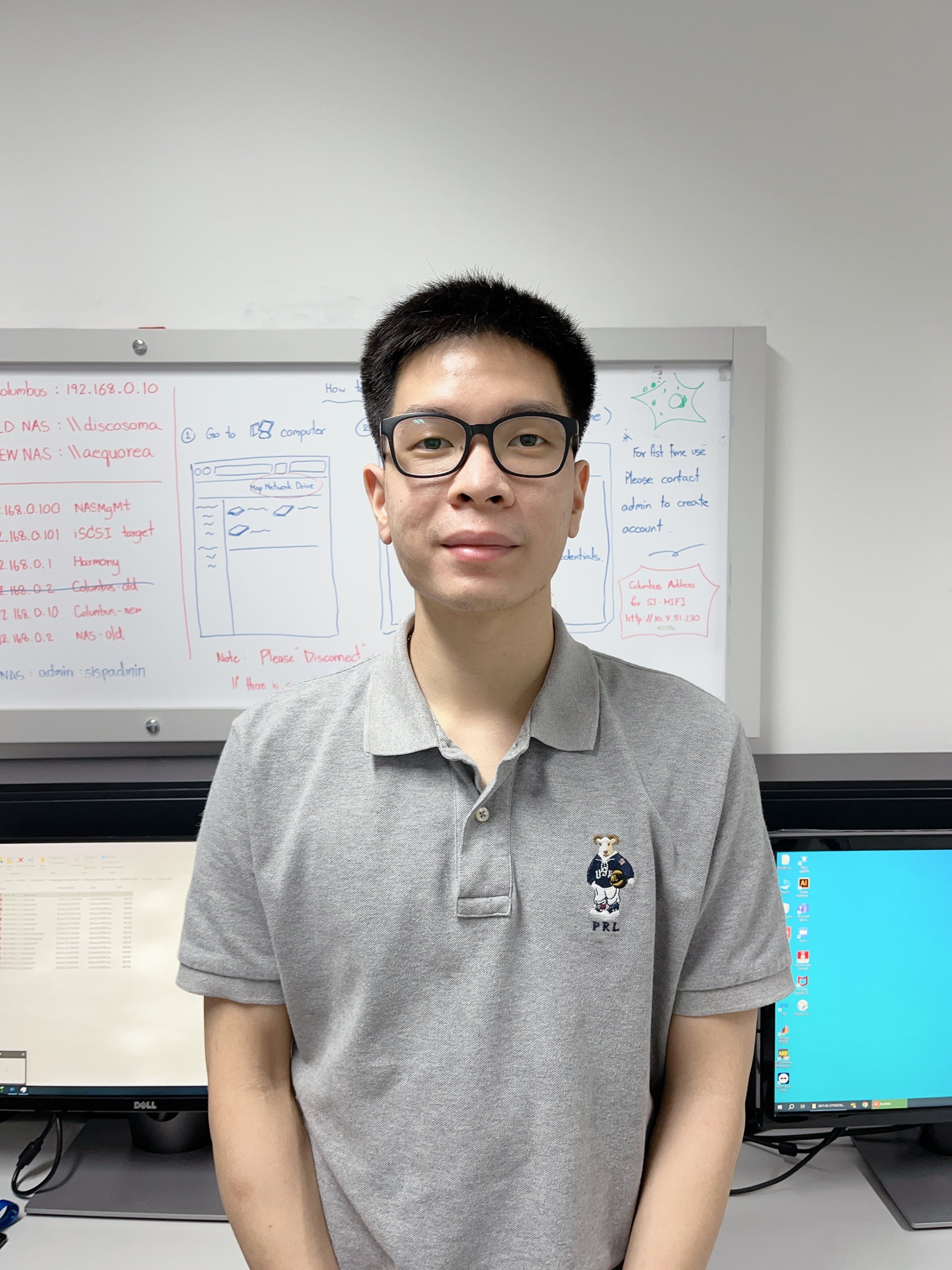
Sarun Tulakarnwong
MSc (Bioengineering)
My research experience includes cell cycle analysis via Edu staining, High-content imaging, in vitro viral assay, inhibitor screening for a viral disease, molecular cloning, viral RNA extraction, and Sequencing data analysis. My current work focuses on dengue viral RNA extraction and viral mutagenesis which contribute to severe disease.
-

Khin Su Su Htwe
Researcher in Cancer Immunotherapy
BSc (Pharmacy)
Our research focuses on the restoration of immune effector cells’ anti-tumor properties from their dysfunctionality state after exposure to cancer cells by small drug compounds using the cancer-immune co-culture system with time-lapse imaging.
-

Thanaphon Likhityungyuen
Multiplex Tissue Imaging Staff
MSc (Zoology)
My work is responsible for cancer diagnostics using multiplex tissue imaging, especially the t-CyCIF (tissue-based cyclic immunofluorescence) technique that generates multiplexed images of formalin-fixed, paraffin-embedded (FFPE) samples, and participating in research on biomarker development for predicting cancer prognosis and therapeutic response using archival specimens.
Admin and Support Team
This center will never function properly without them
Pisarnsri Krataithong
Programme Coordinator
Wipada Phromkhunthod
Programme Coordinator (PM&SP)
Students
-
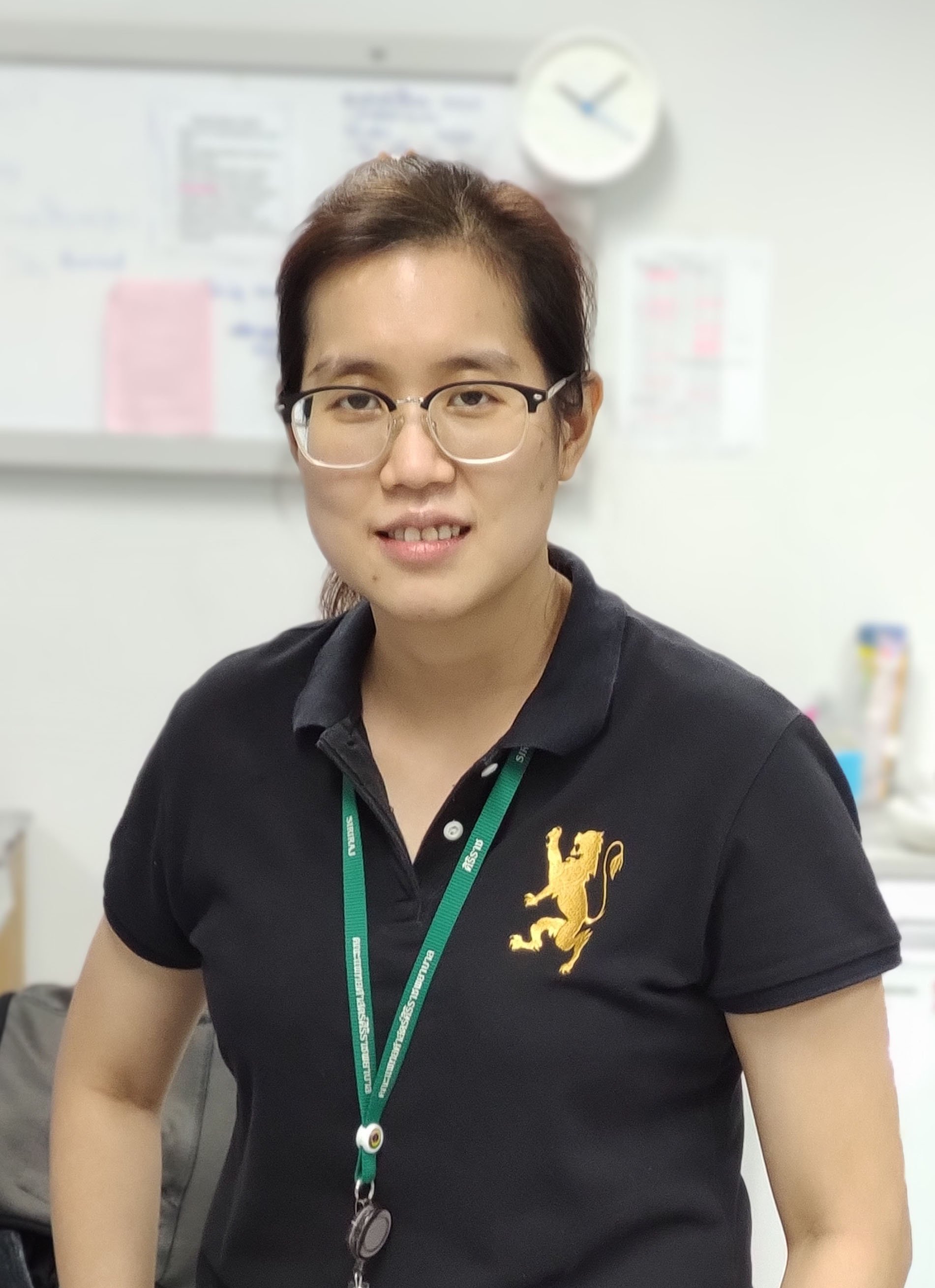
Satinee Aroonpruksakul
PhD Student
Drug resistance, acquired Vulnerability, HER2 expression in CCA
-

Sutthipun suriya
PhD Student
Single-cell transcriptional landscape of ovarian cancer dormancy induced by PARP inhibitors and prevention strategies
-

Diana
PhD Student
Immunophenotypic differences of TAM subsets between primary and metastasis of Thai UPS and MFS for prognosis
-

Hay Mar Oo
PhD Student
Investigation of tumor microenvironment features in Thai pancreatic cancer patients for better patient stratification
-

Abdifetah Ibrahim Omar
PhD Student
Investigating the mechanism of drug tolerant persister cells in the development of therapeutic resistance in Cholangiocarcinoma
-
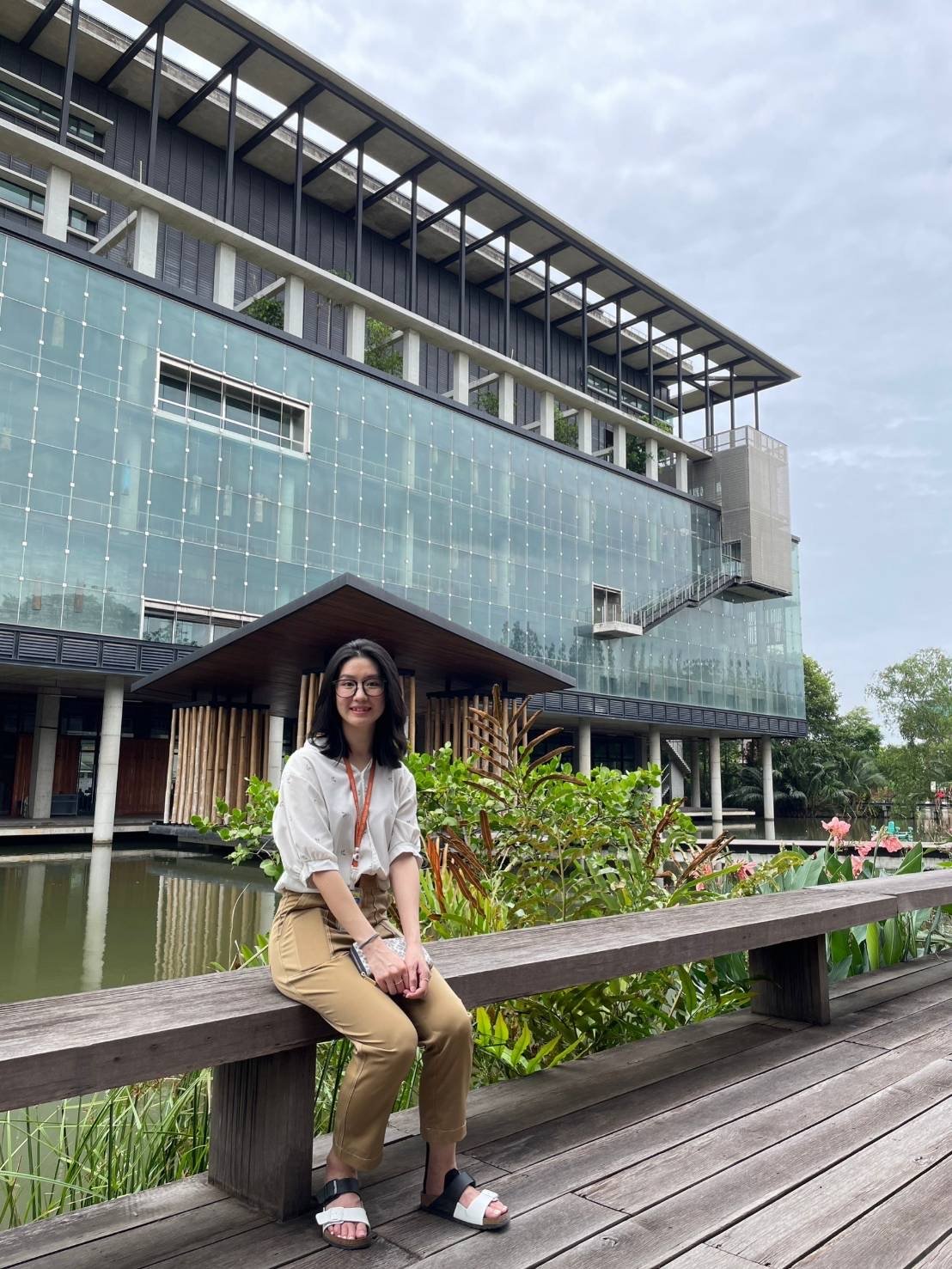
Melanie Lim
PhD student
Development of first-generation dengue RNA vector for cancer immunotherapy
-
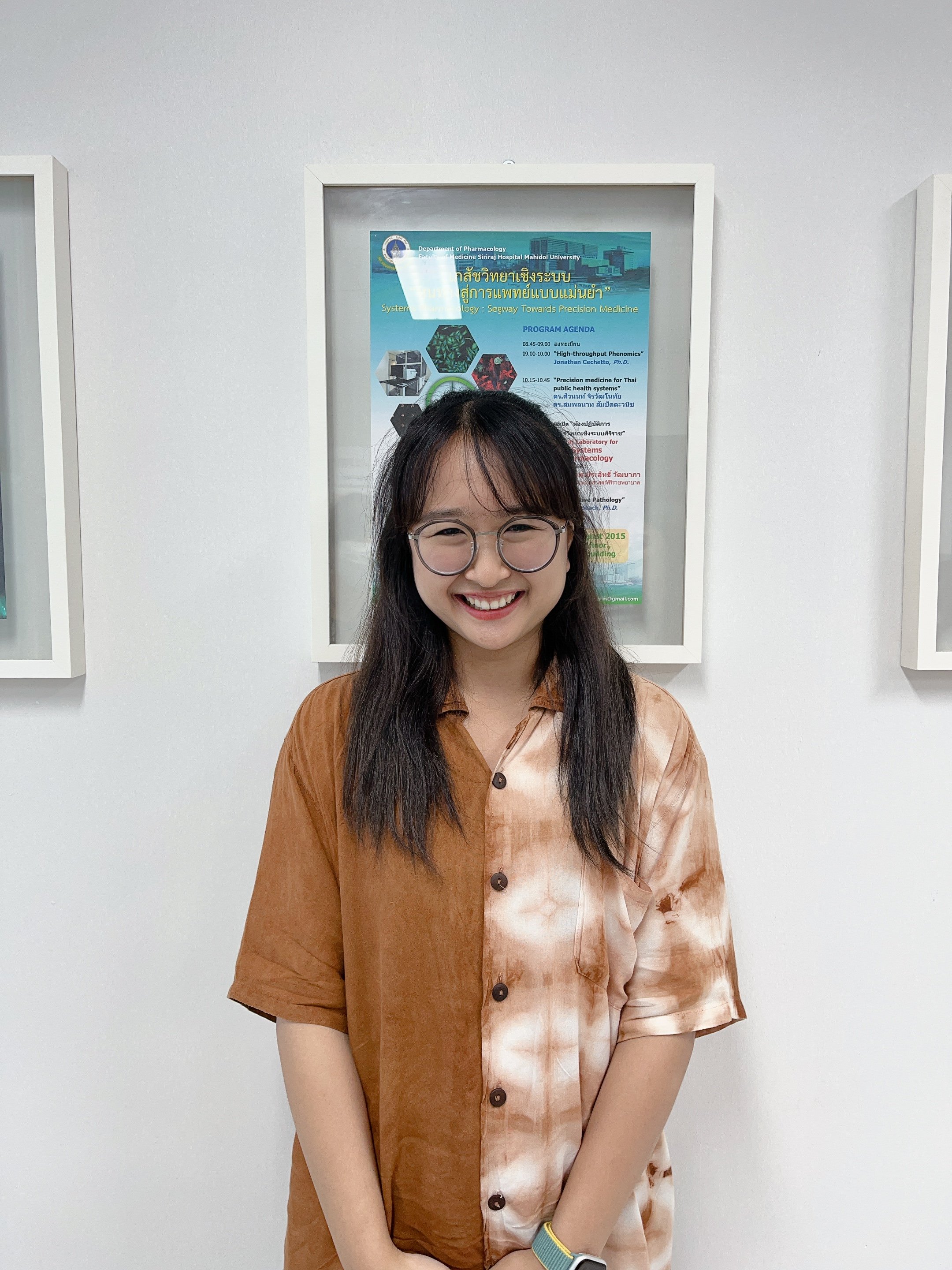
Chuttikran Ronsiri
PhD student
The effect of anthocyanin in atherosclerotic plaque and its function in C57BL/6 high fat diet induced mice model
Alumni
-

Pimkanya More-krong
Organoid and Cell Imaging Specialist
MSc (Medical biochemistry)
We are creating both 2D and 3D cell culture models that can be stored as live biobanks and are useful for identifying new effective cancer-targeting drugs or personalized drug prediction. Besides from establishing the models, I also use multiplex IF staining to perform morphological and phenotype signature evaluation and biomarker study to further support the relevance of these models.
-
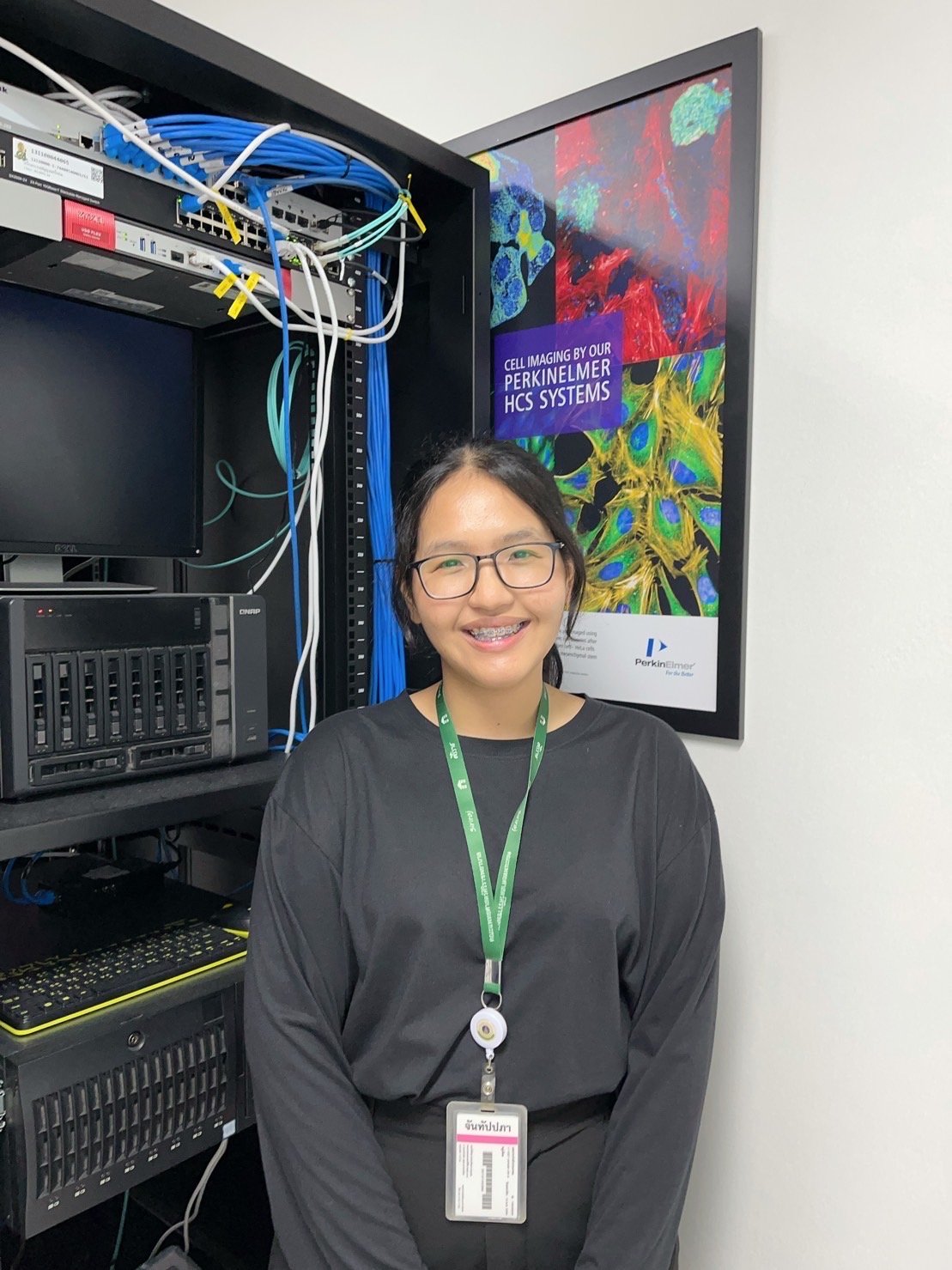
Jantappapa Chanthercrob
Data Analyst
MEng (Biomedical Engineering)
As an oncology data analyst, my main focus is utilizing machine learning to identify cancer subtypes among Thai populations through gene expression profiles. Additionally, I provide proficient bioinformatic frameworks for proteomic data integration and analysis to support our scientists and specialists.
-
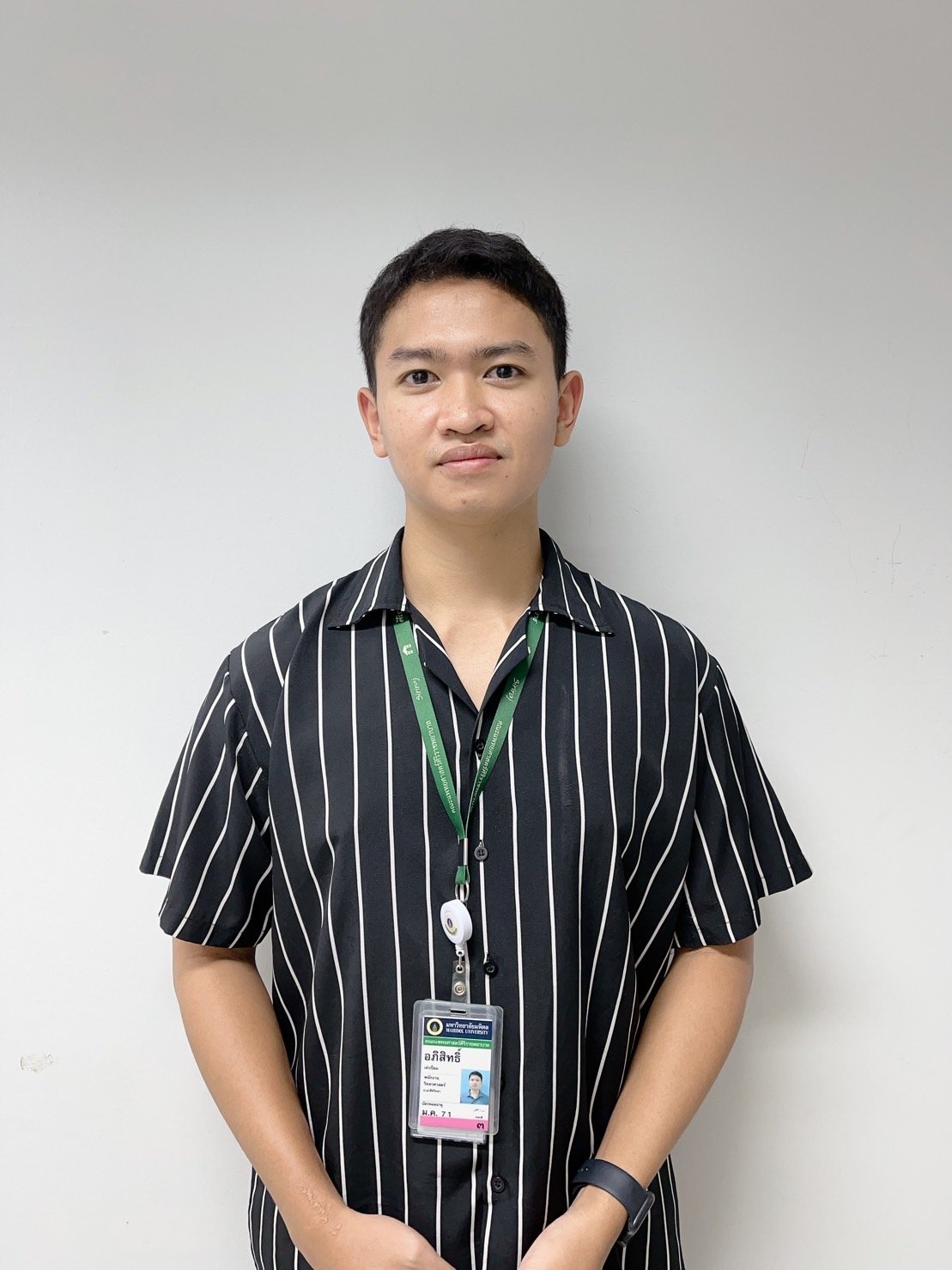
Apisit Laopiem
Animal Laboratory Staff
BSc (Animal Science)
Assisting with the animal experimentation section of researchers' work involves controlling animal breeding, conducting experiments with the animals, and collecting samples from them for testing purposes.
-

Pasith Prayoonrat
Data Analyst
MSc (Computational Biology)
As a bioinformatics data analyst, I specialize in classifying and subtyping cancer among Thai patients using gene expression profiles while developing a web application platform for aggregating potential cancer subtyping models to assist researchers and clinicians. Additionally, I support the development of analytical pipelines for other projects within the SiSP lab.
-

Kodcharat Cheevapruk
PhD Student
Systematic analysis of tumor-stroma interaction and its influence on drug sensitivity in multiple myeloma
-

Oranit Boonphang
PhD Student
Identification of Acquired Vulnerabilities in Targeted Therapy Resistant Cholangiocarcinoma
-

Krittiyabhorn Kongtanawanich
PhD Student
Study of Cholangiocarcinoma Stem Cells
-

Tooba Jawwad
PhD Student
Exploring the single-cell dynamics of FOXM1 under cell cycle perturbations
-

Kannika Nola
Ms Student
The Role of Mitochondria Function in UVB- Impaired Migration of Human Keratinocyte Cells (HaCaT)
-

Punyapa Laprattanawiboon
Ms Student
The identification of protein involved in the role of PM2.5-mediated wound healing of mouse skin




